Founding Fathers Quotes on Privacy, Search, and Seizures in the Fourth Amendment
You're free to republish or share any of our articles (either in part or in full), which are licensed under a Creative Commons Attribution 4.0 International License. Our only requirement is that you give Ammo.com appropriate credit by linking to the original article. Spread the word; knowledge is power!
 The Fourth Amendment prevents unlawful search and seizure. As such, it is currently a giant legal gray area as the courts work out how this old amendment will apply to new and emerging technologies like cryptography and electronic communications. Throughout the entire 19th Century, it was largely understood that the Fourth did not apply to state and local governments. However, in Mapp v. Ohio in 1961, the Supreme Court found that, via the 14th Amendment, the Fourth applied to the state and local governments of the United States as well.
The Fourth Amendment prevents unlawful search and seizure. As such, it is currently a giant legal gray area as the courts work out how this old amendment will apply to new and emerging technologies like cryptography and electronic communications. Throughout the entire 19th Century, it was largely understood that the Fourth did not apply to state and local governments. However, in Mapp v. Ohio in 1961, the Supreme Court found that, via the 14th Amendment, the Fourth applied to the state and local governments of the United States as well.
Like much of the Bill of Rights, the Fourth Amendment is a product of British colonial powers over the United States. The Founders were deeply distrustful of standing armies in general. Widespread searches and seizures were common in colonial America – searches far beyond what would have been allowed in the mother country. There are a number of massive loopholes and exceptions to this amendment, including the motor vehicle exception, the open field exception, and others. Most of this is about litigating what counts as a “search” and what does not.
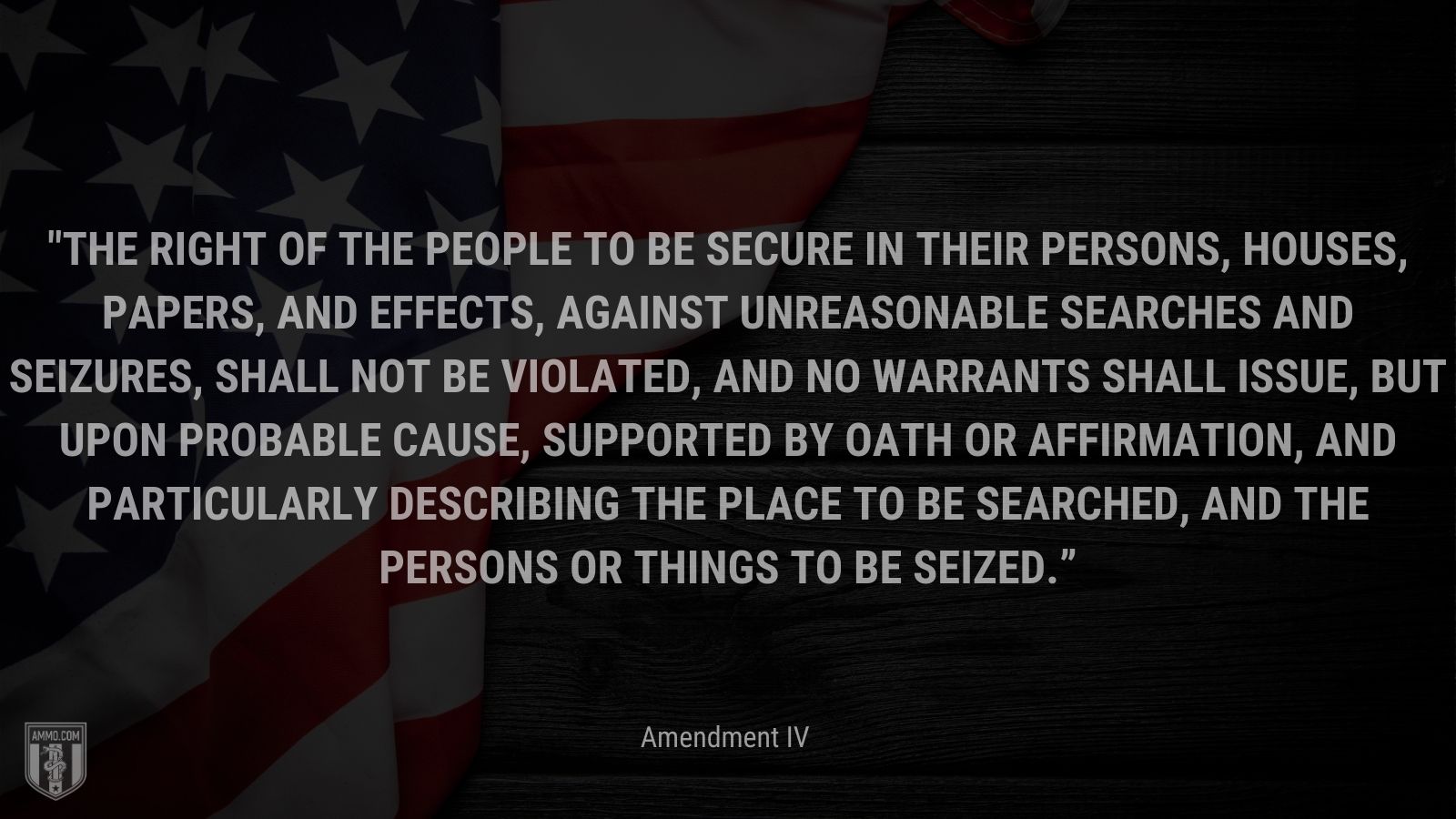
“The right of the people to be secure in their persons, houses, papers, and effects, against unreasonable searches and seizures, shall not be violated, and no Warrants shall issue, but upon probable cause, supported by Oath or affirmation, and particularly describing the place to be searched, and the persons or things to be seized.”
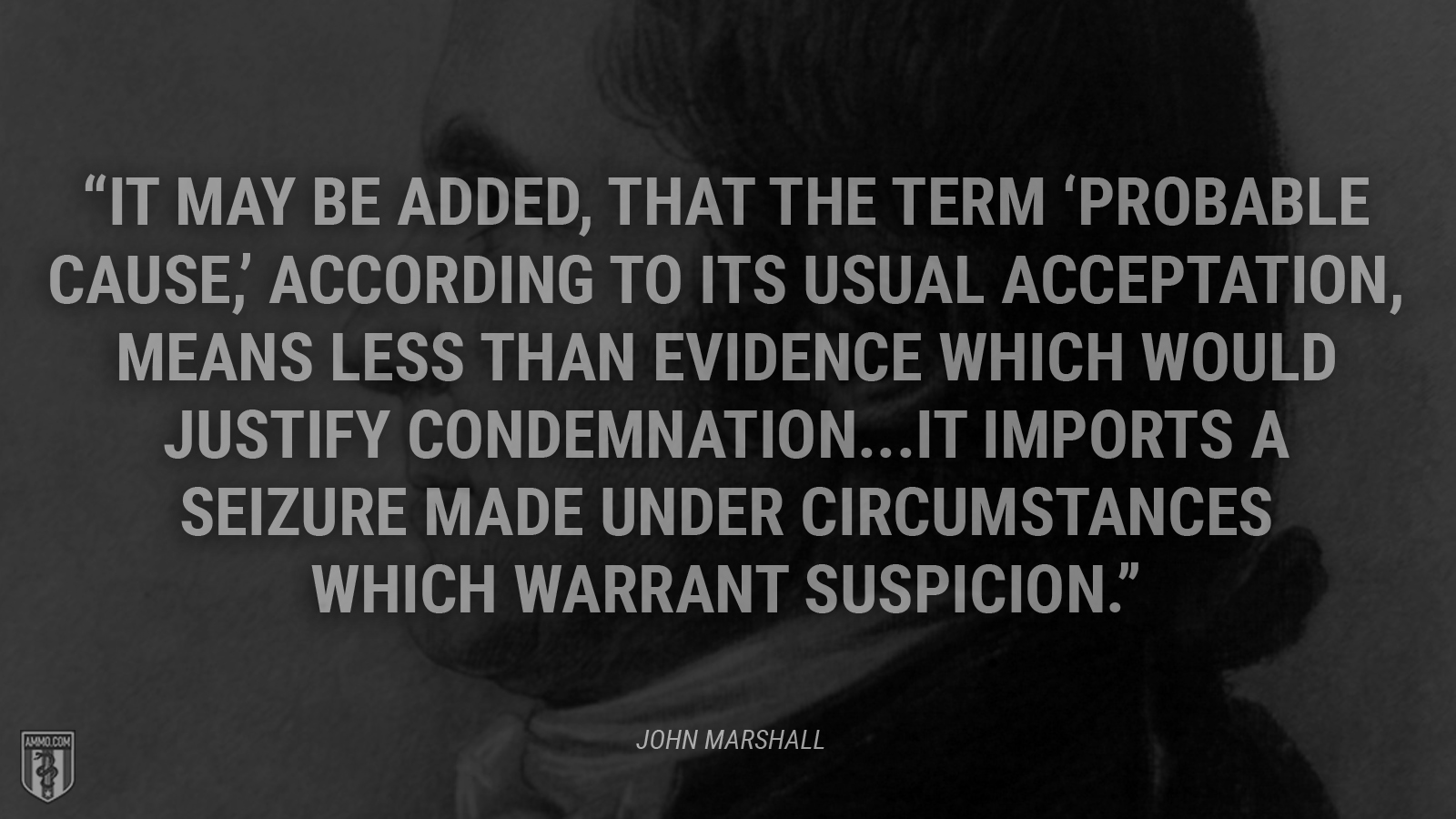
“It may be added, that the term 'probable cause,' according to its usual acceptation, means less than evidence which would justify condemnation...It imports a seizure made under circumstances which warrant suspicion.”
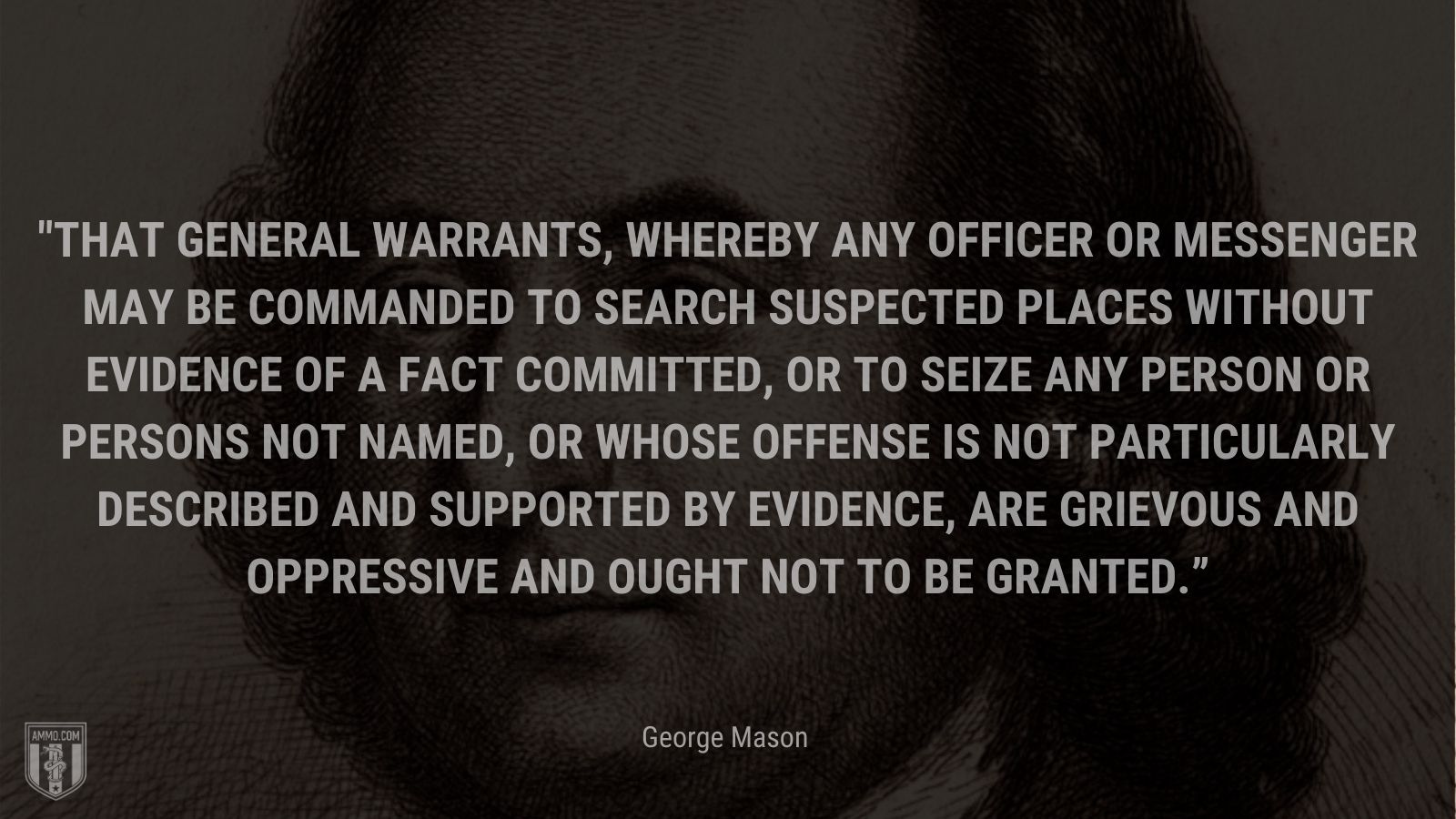
“That general warrants, whereby any officer or messenger may be commanded to search suspected places without evidence of a fact committed, or to seize any person or persons not named, or whose offense is not particularly described and supported by evidence, are grievous and oppressive and ought not to be granted.”
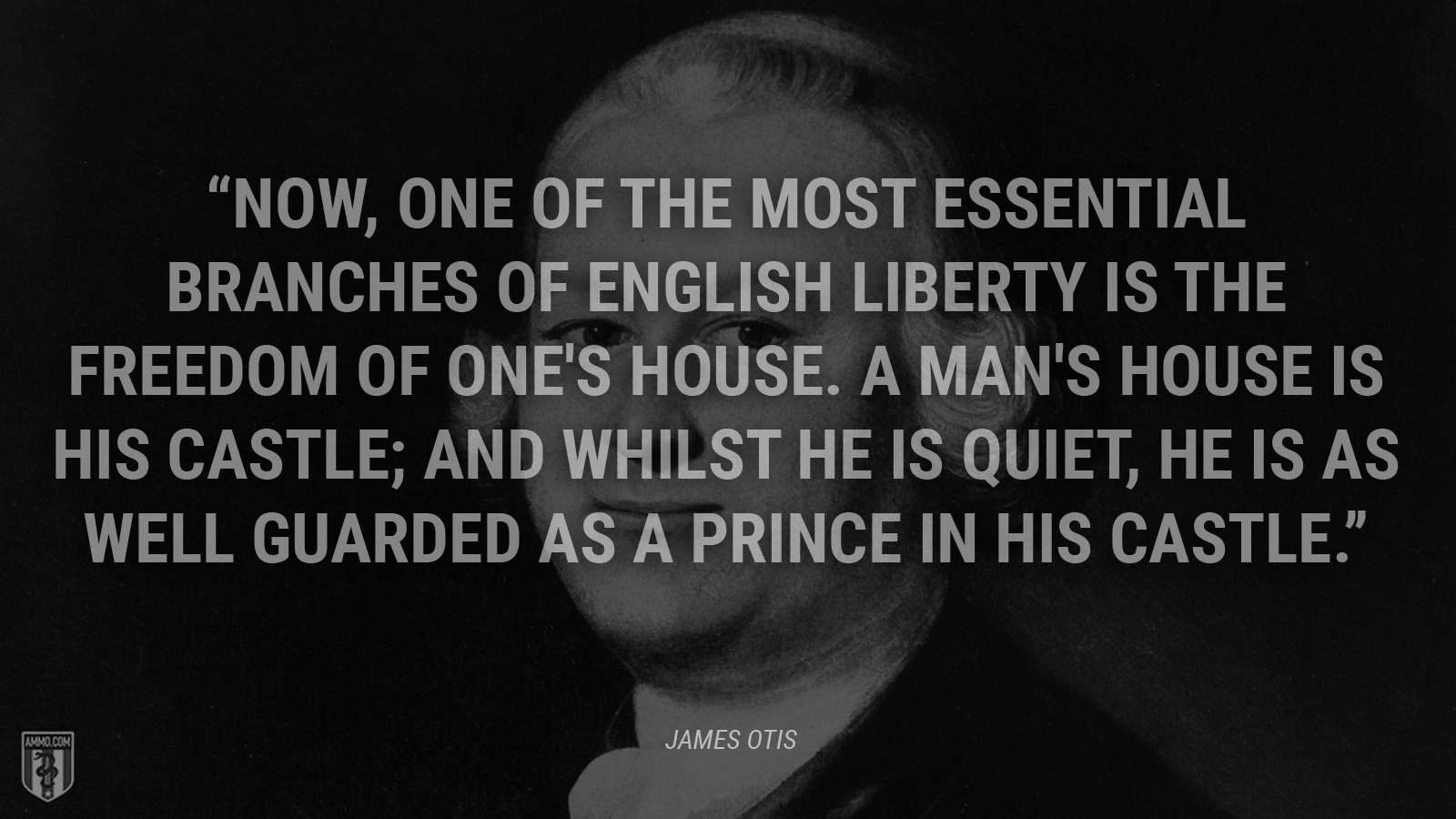
“Now, one of the most essential branches of English liberty is the freedom of one's house. A man's house is his castle; and whilst he is quiet, he is as well guarded as a prince in his castle.”
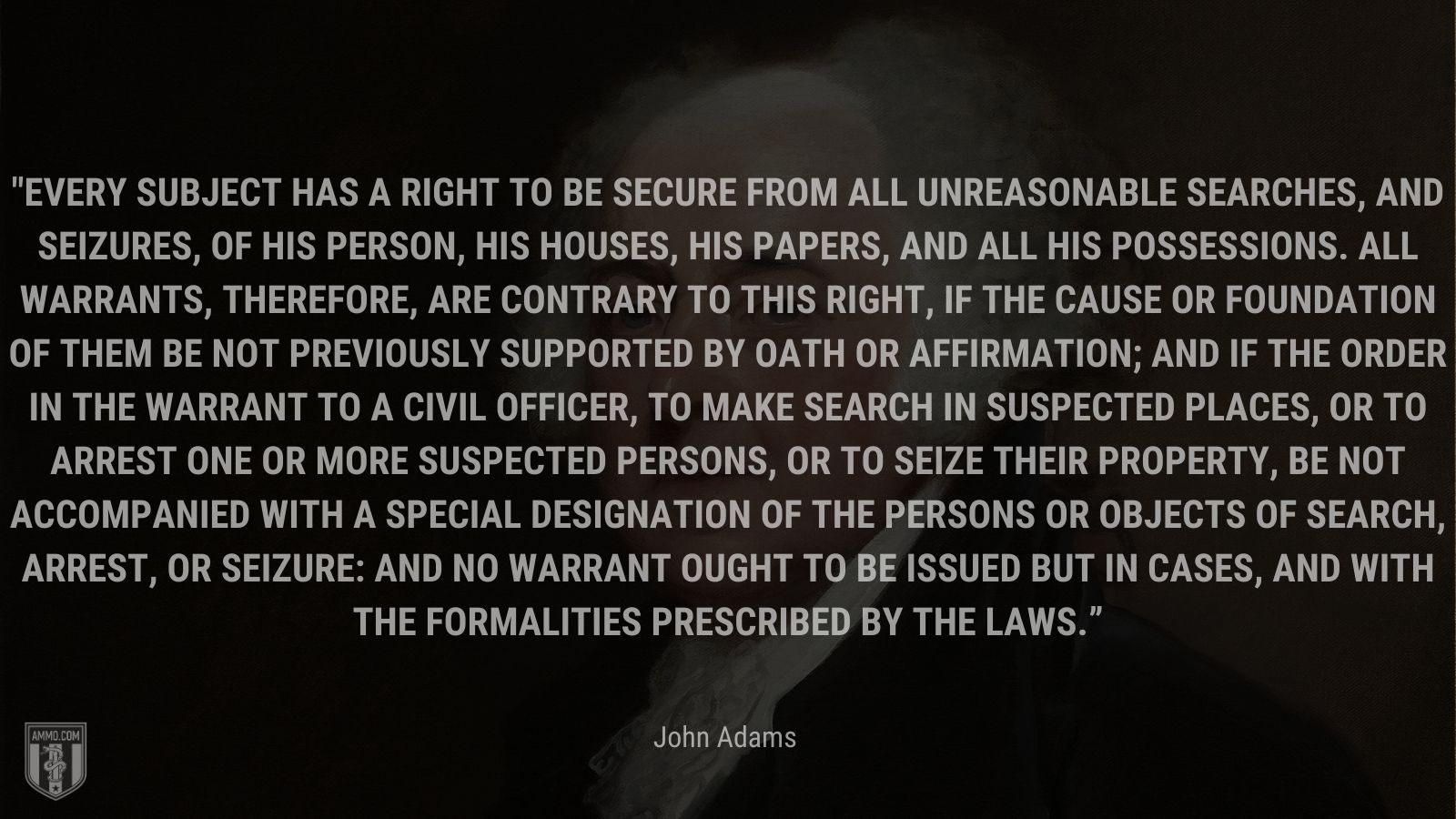
“Every subject has a right to be secure from all unreasonable searches, and seizures, of his person, his houses, his papers, and all his possessions. All warrants, therefore, are contrary to this right, if the cause or foundation of them be not previously supported by oath or affirmation; and if the order in the warrant to a civil officer, to make search in suspected places, or to arrest one or more suspected persons, or to seize their property, be not accompanied with a special designation of the persons or objects of search, arrest, or seizure: and no warrant ought to be issued but in cases, and with the formalities prescribed by the laws.”
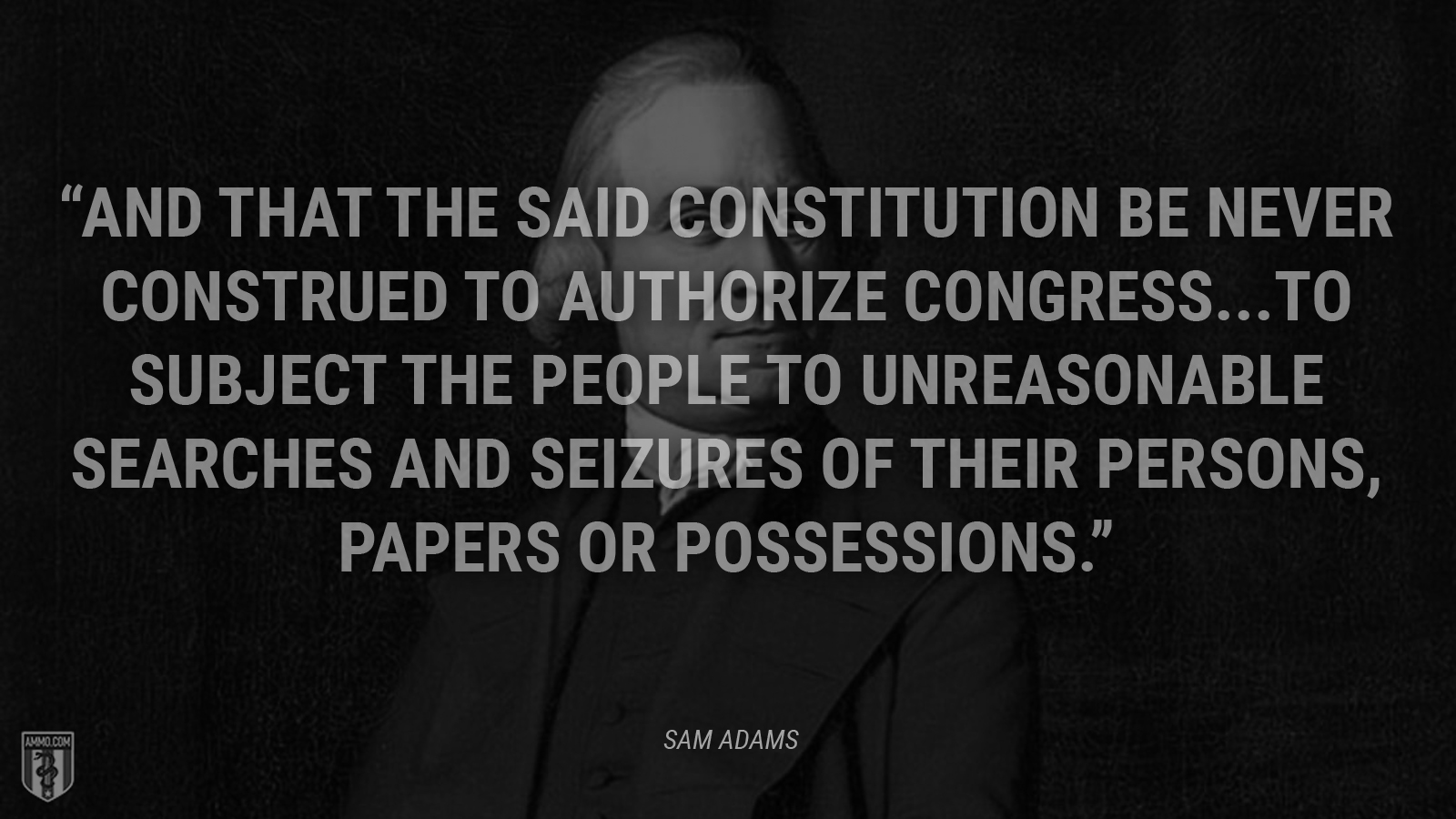
“And that the said Constitution be never construed to authorize Congress...to subject the people to unreasonable searches and seizures of their persons, papers or possessions.”
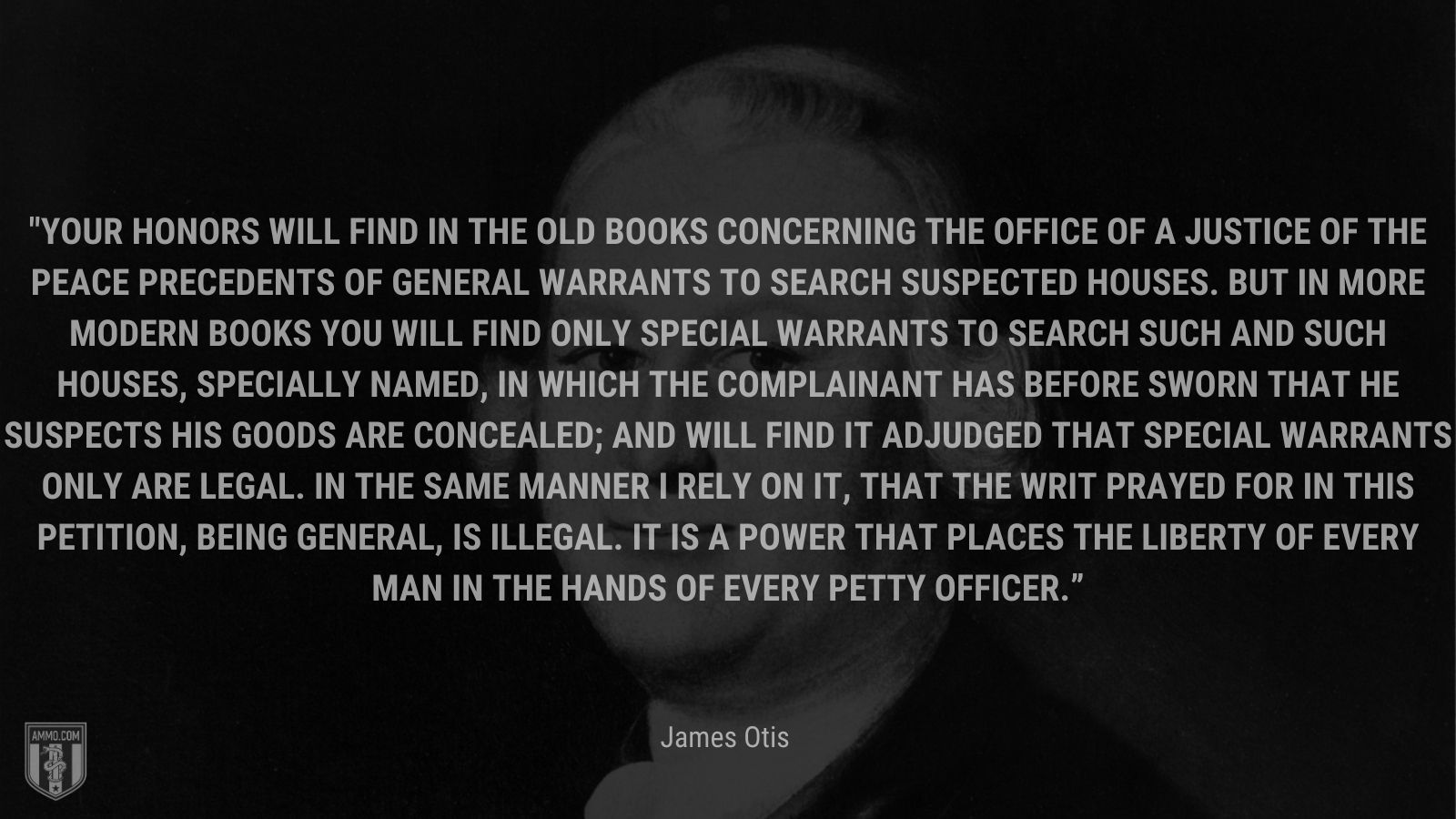
“Your Honors will find in the old books concerning the office of a justice of the peace precedents of general warrants to search suspected houses. But in more modern books you will find only special warrants to search such and such houses, specially named, in which the complainant has before sworn that he suspects his goods are concealed; and will find it adjudged that special warrants only are legal. In the same manner I rely on it, that the writ prayed for in this petition, being general, is illegal. It is a power that places the liberty of every man in the hands of every petty officer.”
Quotes: Founding Fathers
- Founding Fathers Quotes: Our Favorite Quotes from America's Courageous Revolutionaries
- Founding Fathers Quotes on Religious Freedom and the Separation Between Church & State
- Founding Fathers Quotes on Freedom of Speech and Freedom of Press in the First Amendment
- Founding Fathers Quotes on Guns and the Second Amendment's Right to Keep & Bear Arms
- Founding Fathers Quotes on Standing Armies and Quartering Troops in the Third Amendment
- Founding Fathers Quotes on Privacy, Search, and Seizures in the Fourth Amendment
- Founding Fathers Quotes on Due Process and Eminent Domain in the Fifth Amendment
- Founding Fathers Quotes on Criminal Justice and the Right to Counsel in the Sixth Amendment
- Founding Fathers Quotes on Civil Lawsuits and Common Law in the Seventh Amendment
- Founding Fathers Quotes on Excessive, Cruel or Unusual Punishment in the Eighth Amendment
- Founding Fathers Quotes on the Dangers of Centralized Power in the Ninth and Tenth Amendments
- Founding Fathers Quotes on the Importance of Physical Health and Exercise
- Founding Fathers Quotes on How Central Banking is Destructive to America's Economic System
- Founding Fathers Quotes on the Importance of Wisdom and Education in a Free Society
- Founding Fathers Quotes on the Limited Executive Powers of the United States Presidency
- Founding Fathers Quotes on Why America's Revolutionaries Fought For Liberty and Freedom
- Founding Fathers Quotes on Justice For All and Equal Treatment Under the Law
- Founding Fathers Quotes on Hope for Peace, Hesitation for War & Restrictions for Military
- Founding Fathers Quotes on Family, Friends, and Seeking Wisdom Through Relationships
- Founding Fathers Quotes on Politics, Patriotism, and the Importance of Putting America First
- Founding Fathers Quotes on the American Revolution and the Fighting Spirit for Independence
- Founding Fathers Quotes on Government, Democracy, and Placing Power in the People
- Founding Fathers Quotes on the Founding of the Nation and the United States Constitution
